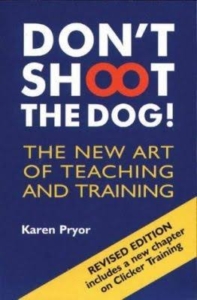Writing Lab Returns
 This fall I am taking time off from teaching my regular load of classes. I am training myself to avoid saying, “I’m not working.” I am working. I’m getting up every morning and writing…except when I’m on my way to Chehalis (so far, every week) to see my mother, or to attend a conference. I am working –feverishly — on the unassailable rewrite of my novel. Encouraged by the three days at LitFuse, a total immersion in poetry, I’m also working on a new, long poem.
This fall I am taking time off from teaching my regular load of classes. I am training myself to avoid saying, “I’m not working.” I am working. I’m getting up every morning and writing…except when I’m on my way to Chehalis (so far, every week) to see my mother, or to attend a conference. I am working –feverishly — on the unassailable rewrite of my novel. Encouraged by the three days at LitFuse, a total immersion in poetry, I’m also working on a new, long poem.
One Monday each month (yesterday, as it turned out) I’m meeting with two other novelists to look at pages and talk about how one gets what is in one’s head into a story.
On Tuesday afternoons, I’ll be meeting with colleagues at the college for Writing Lab. It’s our fourth year — or is it our fifth? There are only a stalwart few of us, staff and faculty (a couple writing teachers) and alum, but we meet every week and write for 45 minutes or an hour, and then we spend a few minutes reading aloud what we’ve drafted. At the end of the year, we gather at Under the Red Umbrella (a local eatery) to celebrate. In these ways the work progresses.
Here is a quote I plan to share with the lab today. It is from Louise DeSalvo’s Writing as a Way of Healing:
“I didn’t know that if you want to write, you must follow your desire to write. And that your writing will help you unravel the knots in your heart. I didn’t know that you could write simply to take care of yourself, even if you have no desire to publish your work. I didn’t know that if you want to become a writer, eventually you’ll learn through writing — and only through writing — all you need to know about your craft. And that while you’re learning, you’re engaging in soul-satisfying, deeply nurturing labor. I didn’t know that if you want to write and don’t, because you don’t feel worthy enough or able enough, not writing will eventually begin to erase who you are.” (31)
“Soul-satisfying, deeply nurturing labor.” That’s what I’m engaged in this fall.





 As part of my homework for our class project, I have been rereading a book a friend recommended to me when my twins were toddlers. It is Don’t Shoot the Dog by Karen Pryor, and a great teaching manual to have on hand whether you are working with dogs, dolphins, or college students. No, I can’t claim to be much of a trainer, but the message I’ve absorbed from multiple readings is that it isn’t really the animal’s behavior (or the child’s) that you have control over, it’s your own. This book is filled with good humored anecdotes — from her cat’s perspective, Pryor tells us, “she is training me; she has found a way to get me to ‘Come'” — and offer food, besides.
As part of my homework for our class project, I have been rereading a book a friend recommended to me when my twins were toddlers. It is Don’t Shoot the Dog by Karen Pryor, and a great teaching manual to have on hand whether you are working with dogs, dolphins, or college students. No, I can’t claim to be much of a trainer, but the message I’ve absorbed from multiple readings is that it isn’t really the animal’s behavior (or the child’s) that you have control over, it’s your own. This book is filled with good humored anecdotes — from her cat’s perspective, Pryor tells us, “she is training me; she has found a way to get me to ‘Come'” — and offer food, besides.